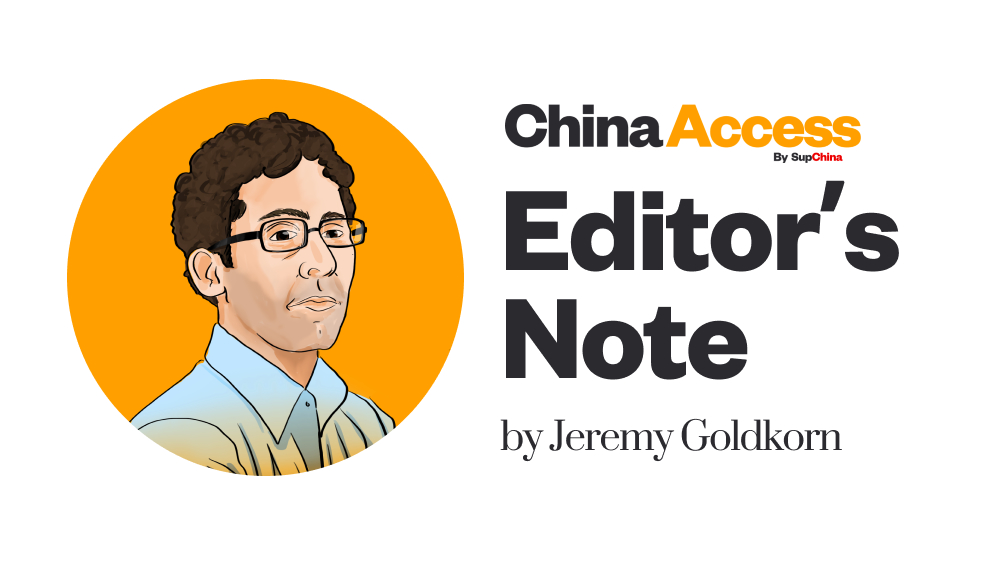Editor’s Note for Thursday, November 3, 2022
A note for Access newsletter readers from Jeremy Goldkorn.

Our word of the day is: Don’t order cold dishes (别点凉菜 bié diǎn liángcài). The phrase has gone viral in China because a local government official suggested that uncooked food was less likely to transmit the virus that causes COVID-19. He made the remark at a press conference arranged by the government of Zhengzhou, the capital city of the much-maligned province of Henan. But now the good people of Henan are having a good laugh.
“I spent 10 days in a secret Chinese COVID detention center” is the title of a fantastic long read by Thomas Hale in The Financial Times:
The facility consisted of neat rows of what might be described as cabins, each one a shipping container-like box, sitting on short stilts above the ground. On the side of some of the rows, a large smiling animal had been painted, like a mural on a temporary school built after a natural disaster. It was hard to tell how many cabins there were in all. Fluorescent outdoor lighting flickered above, and a camera was positioned with a view of every door. Neither was ever turned off…
…The bed was made of an iron frame and six planks of wood, and the mattress was so thin you had to lie completely flat. The bed frame, meanwhile, was impossible to lean against.
Both of these news items, and our top story today, make me think that COVID zero is going to last a long time. In February of 2020, before the pandemic had even arrived in the U.S. and Europe, I wrote an opinion piece called The coming biosecurity state — How the coronavirus will strengthen China’s surveillance state. I still believe that the Chinese government and the Communist Party that runs it will not easily let go the highly effective means of control over its citizens that the pandemic has legitimized.
I have colleagues in China who tell me that things are really going to loosen up soon, that now that the Party congress is over, things are going to relax. So maybe I am completely mistaken. But my own instinct is that if COVID-19 ceases to be a health threat, there will be other risks that the Chinese government will use as justification for red and green codes for citizens.
—Jeremy Goldkorn, Editor-in-Chief






